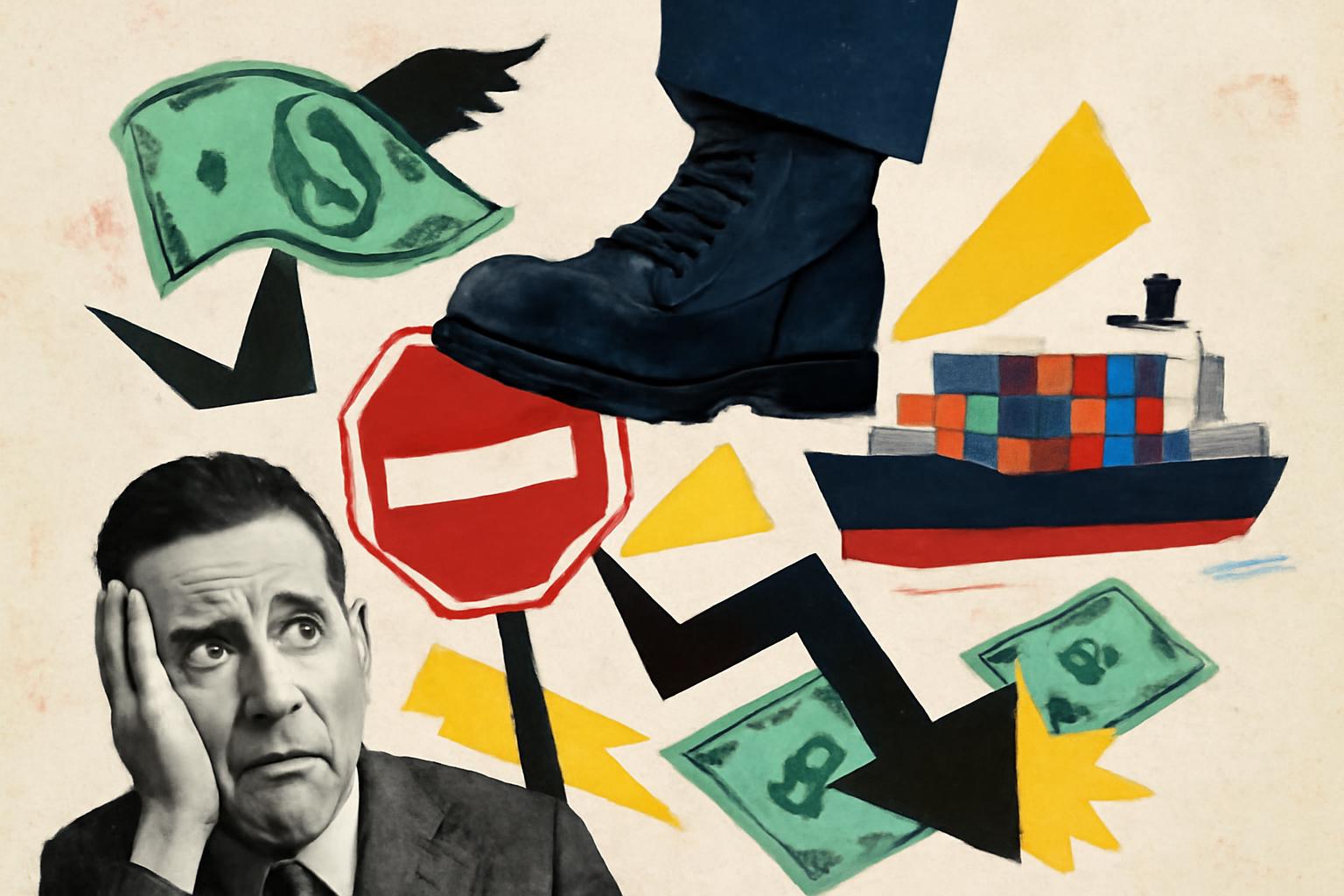Once more, the state’s iron fist comes down on voluntary exchange—disguised, as always, as protectionism, “fairness,” or national interest. The abolition of the de-minimis rule is a glaring affront to property rights and individual liberty. Any pretense of a “free market” evaporates when the government arbitrarily imposes an $80–200 penalty on the mere act of consensual trade. This is outright looting. Rothbard would call it theft, Hayek would call it economic folly, and Rand would rightly call it the moral abomination of sacrificing the individual’s freedom on the altar of nationalist collectivism.
Tariffs are not a gun aimed at hostile foreigners; they are a gun pointed squarely at the heads of American consumers, with the state pulling the trigger. Direct access to affordable goods from global entrepreneurs—Temu, Shein, or anyone else—is the very lifeblood of individual choice and decentralized knowledge. Hayek recognized that it is ordinary people, not bureaucrats, who possess the knowledge to improve their own lives. Every tariff is a testament to the state’s belief that it, and only it, knows best. The government’s coercion systematically destroys this spontaneous economic order, replacing it with political bargaining and cronyism (look no further than the handouts and “deals” for Ford and South Korean investors).
The story here is the state’s perpetual power grab—wielding tariffs as political blackmail, rewarding cronies, and punishing those who refuse to toe its line. Procedures like “trade negotiation” simply mean: you may trade freely only when we grant you your chains of permission. This is positive freedom utterly perverted, precisely what Nozick warned against: subordinating the sphere of private choice to the shifting whims of a centralized authority. That Trump (or any state leader) can single-handedly raise costs, damage billions in value, and distort the market on a whim is the natural result of granting the state this monstrous power in the first place.
It doesn’t matter if the state claims to be working for the “American worker,” pursuing “national security,” or teaching a “lesson” to Brazil or India—every justification is a paper-thin mask over straightforward coercion. You cannot “negotiate” true freedom; as Rand argued, rights are not gifts from the state, but moral imperatives. If the U.S. consumer wishes to voluntarily exchange with a Pakistani, a Brazilian, or a Frenchman, that is an exercise in liberty, not a matter for a bureaucrat’s approval.
Political motivations—punishing Brazil for prosecuting Bolsonaro, or retaliating against India for not falling in line with U.S. foreign policy—reveal the state’s true nature: an engine of arbitrary compulsion. These tariffs do not protect “national interests”; they are the state’s assertion of its own interests against those of its subjects.
Every dollar added in tariffs is a dollar stolen from the individual’s freedom to choose, to create, to prosper. Every “deal,” every quota, is a new chain. Real trade is the spontaneous order of billions of independent lives; “managed trade” is just another word for economic serfdom. If you care for real freedom, if you understand the lessons of Hayek, Rand, and Nozick, you know the answer—tear down these tariffs, abolish these controls, and let men and women exchange as they see fit. Anything less is submission to the boot of state power.
